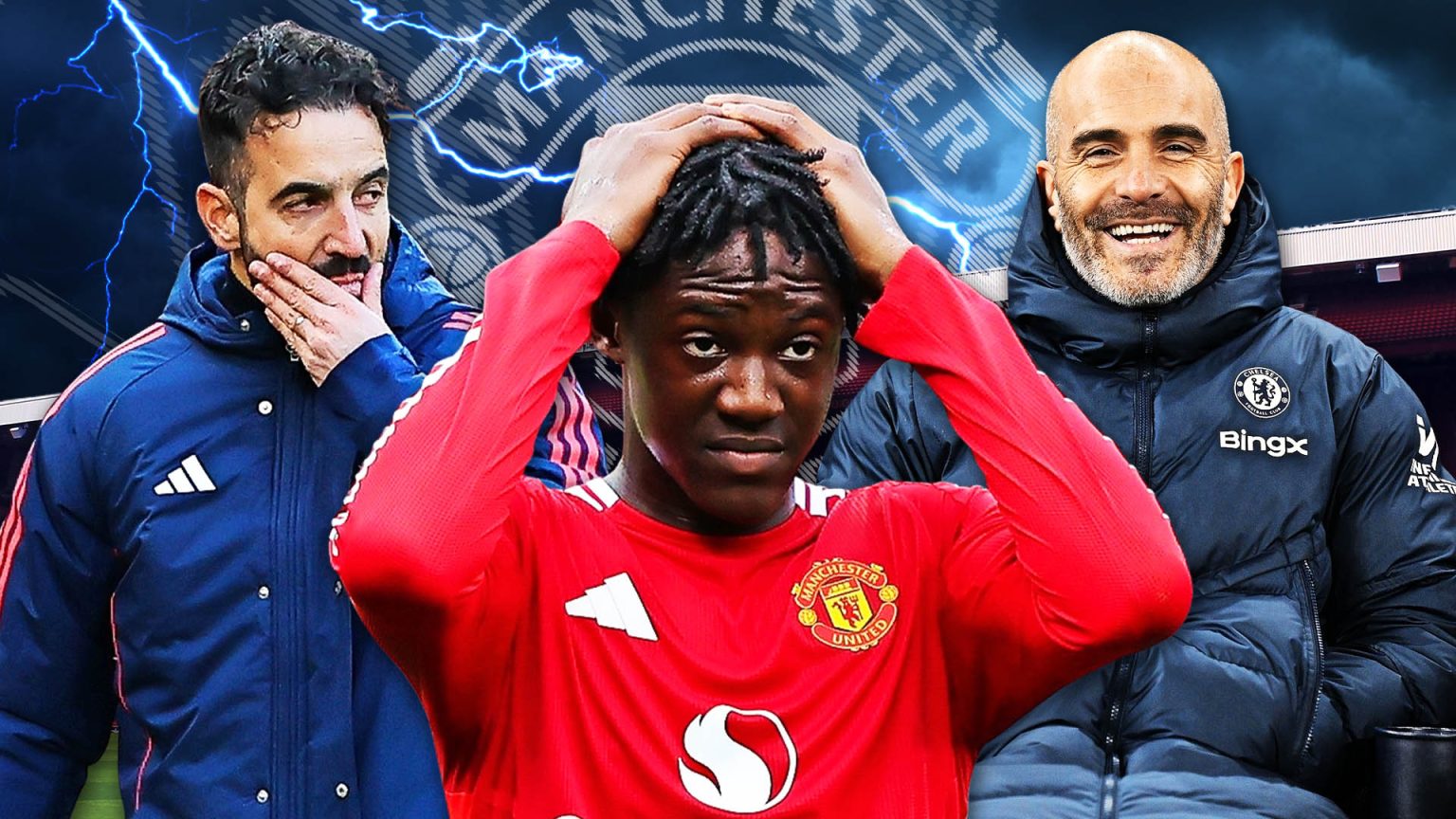Manchester United manager, Ruben Amorim, finds himself in a precarious situation as he navigates the club’s financial constraints while aiming to retain promising young talents. Kobbie Mainoo, a highly-rated 19-year-old midfielder and target for Chelsea, has become a focal point of this dilemma. Valued at £60 million, Mainoo’s potential sale could be a necessary sacrifice to keep the Red Devils compliant with Premier League financial regulations. The young English midfielder is currently in a contract standoff with the club, seeking a pay raise and extension on his current £20,000-a-week deal, which expires in 2027. Amorim, while expressing his admiration for Mainoo and his desire to retain the club’s best players, acknowledges the challenging financial reality facing Manchester United.
The Premier League’s Profit and Sustainability rules, which limit losses to £105 million over a three-year period, place significant pressure on clubs to manage their finances effectively. Players developed within the academy, like Mainoo, are considered pure profit on these balance sheets, making their sale a tempting option for clubs seeking to generate funds. This puts not only Mainoo but also other academy products like Alejandro Garnacho and even established star Marcus Rashford, who has attracted interest from AC Milan and Borussia Dortmund, in a vulnerable position. Their departures could provide Amorim with the financial leeway to pursue his transfer targets and bolster his squad.
Amorim has openly acknowledged the need to sell players before making new acquisitions. He has expressed interest in reuniting with Sporting Lisbon striker Viktor Gyokeres and is also reportedly targeting Nigerian forward Victor Osimhen and Portuguese left-back Nuno Mendes. However, the financial constraints limit his ability to actively pursue these targets without first generating funds through player sales. This creates a complex balancing act for Amorim, who must weigh the financial benefits of selling promising young players against the potential long-term impact on the team’s development and success.
The uncertainty surrounding Mainoo’s future reflects the broader challenges facing Manchester United. The club’s current 13th place standing in the Premier League underscores the need for reinforcements, but financial limitations restrict Amorim’s ability to address these weaknesses. The situation is further complicated by the ongoing uncertainty surrounding Marcus Rashford’s future. The forward has missed the last six games, expressing a desire for a new challenge, adding another layer of complexity to Amorim’s squad management.
As Manchester United prepares for their FA Cup tie against Arsenal, Amorim remains tight-lipped about Rashford’s availability, stating only that he and other players are available and training. The manager’s focus is now on navigating this crucial period, balancing the immediate needs of the team with the long-term financial stability of the club. The FA Cup tie, steeped in “history” and “tradition” as Amorim notes, represents a welcome distraction from the ongoing transfer speculation and a chance for the team to refocus on their on-field performance.
The coming weeks will be crucial for Manchester United. Decisions regarding player sales, contract negotiations, and potential new signings will shape the club’s trajectory for the remainder of the season and beyond. Amorim’s ability to navigate these challenges will be a significant test of his managerial acumen, as he seeks to build a competitive squad while adhering to the club’s financial realities. The delicate balance between short-term needs and long-term stability will define the club’s success in the months to come.




